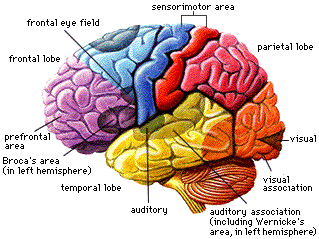BrainWorks (The Beautiful Mind)
Brain Based - Trauma Focused

BrainWorks is the first of a four part Restorative Practice training that is brain based and trauma focused. Evidence based training for those who work directly with troubled youth and families – clinicians, special educators, teachers, child/youth care workers, case managers, or foster care providers. Training to provide the best of care when youth act like children – yet want to be treated like adults.
Day 1: BrainWorks – The Beautiful Mind
Day 2: Trauma Theory
Day 3: Aggressive Youth (1/2 day)
Day 3: Attachment Theory (1/2 day)
These trainings can be taken as stand alone or collectively selected.
Neuroscience training geared toward service providers working with troubled children, youth and families. BrainWorks training use innovative approaches from neuroscience, rational ecological and psychosocial methods to help give a greater understanding of troubled children and youth and the various psychoeducational programs used in many agencies today. Emphasis is on relations training to improve strength-based programming. Programs that help youth build resiliency and Restorative Practice is key.
Everyone wants children and youth to thrive in their homes and educational environments. Unfortunately, many youth are lucky enough just to survive. If given extra supports many of the young people we serve will thrive very well. . Evidence based training for those that work directly with troubled youth and families – clinicians, child/youth care workers, special educators, teachers or foster care providers. Training to provide the best of care when youth act like children – yet want to be treated like adults. Strength-based training providing “hands-on”, solution focused practical skills for those that work directly in the “life space” of troubled youth and families.
When aggressive or shy youth, autistic or mild MR clients learn lacking skills, new neural pathways are created. Programs are always trying to teach new and better ways of social functioning and interactions. Get the inside view of how cognitions develop and where the distortions come from. Unfortunately, even if we extinguish an undesirable behavior and replace it with a newly learned behavior, the old neural system still exists - hiding like a virus in a computer, ready to re-infect when conditions are ready.
A large view is placed on strategically focusing on brain systems and using the power of positive youth relationships. It is believed that when staff intervene using correct brain systems, the lives of children and youth improve.
BrainWorks takes the Neurodevelopmental View: Using observable phenomena to determine underling causes. Such behaviors may or may not show up in a formula or in a series of test scores, but observable evidence proves they exist. No labels, diagnosis or classifications. This model is much more precise, specific, and less stigmatizing.
BrainWorks present how the cognitive process works, or in some cases, does not work. Brain mapping demonstrate healthy boundaries, poor boundaries and attachment difficulties. BrainWorks looks at both the talk-therapy (software) and brain function (hardware). When troubled kids are stressed, what usually happens is that they regress to more primitive type of thinking. The need is to restore rational thinking processes to improve communication for a more healthy state of mind. It is believed that when staff intervene using the correct brain systems, the lives of children and youth improve.
Connecting youth, family and community.





